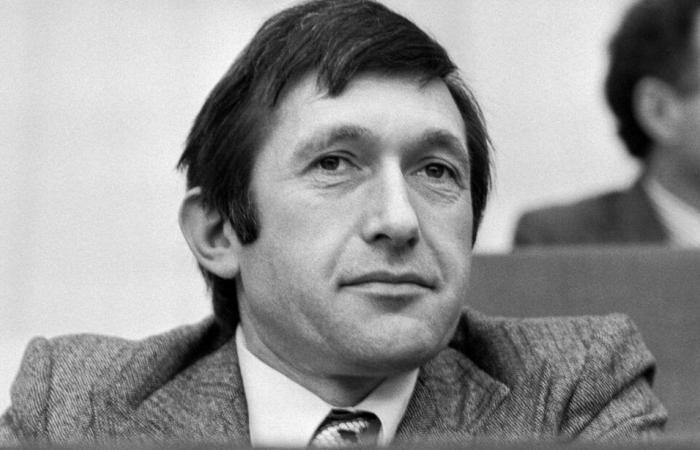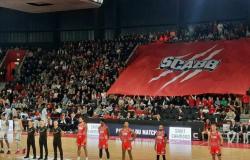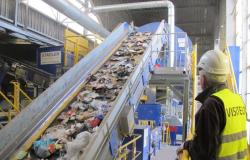The death of André Lajoinie, a largely forgotten figure of the PCF, takes us back to a time that seems very far away: when the left from the workers' movement sought to conquer the hearts of the peasants, says our columnist, the historian Jean-Numa Ducange .
The disappearance of André Lajoinie, a largely forgotten figure of the PCF, takes us back half a century when the party of Georges Marchais began a decline and then an (almost) irremediable evaporation. In the midst of an agricultural crisis, it also takes us back to a time that seems very far away: the time when the left from the workers' movement sought to conquer the hearts of peasants.
Jean-Luc Mélenchon warmly honored the death of André Lajoinie: “ I salute his absolute dedication to communism and popular struggles, particularly in rural and peasant environments, for which he was an effective and powerful spokesperson. “. Barely in his grave, the former leader of the PCF attached to the defense of the rural world can already return there. The future candidate for the next presidential election recently explained that it was necessary “ drop (…) everything else “. Understand: let’s focus on large urban areas and certainly not waste time elsewhere…
READ ALSO: “To escape from its elitist image disconnected from reality, the left must embody a new radicalism”
André Lajoinie was not strictly speaking a leading man, but his role was important enough to provoke some reactions from several political leaders on the occasion of his death. Leader of the generation of Georges Marchais, he wore the colors of the PCF in the 1988 presidential election in a difficult context for the party.
François Mitterrand triumphs against the right, carrying away everything or almost everything in his path. André Lajoinie makes less than 7%. Fabien Roussel would uncork the champagne with such a score today. But at the time it was a new catastrophe. Georges Marchais in 1981 at 15%, the activists were already collapsed. This is the debacle. A little less than a year before the fall of the Berlin Wall, the die was cast…
A rural trajectory
In the 1988 legislative elections, significantly, the PCF held up a little better in its areas of strength. These are located around some large cities, but also in more rural areas. Lajoinie is a man from Allier. Son of a farmer, he was its emblematic deputy for twenty years.
And this is where he deserves to have a certain place in the collective memory, at the risk of only remembering the face of the rout of 1988. Because although marked with the seal of the perfect apparatchik in certain ways (school of executives , training in Moscow…), André Lajoinie is also part of a longer tradition, that of the defense of small peasant owners against the “big ones”. That is to say against those who industrialize agriculture and turn their products into competitive goods to above all satisfy the needs of the market.
READ ALSO: An electoral reservoir time for the right, farmers facing the temptation of protest voting
A republican, socialist and therefore even communist tradition has sought to compete with conservative currents historically very established in the countryside. A minority, this sensitivity has sometimes weighed on certain political balances at the local level, giving rise to a little Republican blue and then red in several rural areas. The French people concerned, left-wing and rural at the same time, never really believed in “collectivization”, preferring the small peasantry to Soviet mirages.
The communists understood this early. It is no coincidence that the number one in the PCF before Marchais, Waldeck Rochet, also came from the region (from Bresse in Saône-et-Loire). This is not nothing: the leader of the first left-wing party in 1968 (i.e. Waldeck Rochet at the head of the PCF) came from a rural environment! Thirty years earlier, in 1937, in the midst of the Popular Front, he had founded Eartha communist newspaper defending a certain conception of the rural world. He fights to this day to exist and make another voice heard. The Insoumis would tell you to “let it go”. Not this tradition that Lajoinie, not willingcontinued to embody.
The future: what links between the left and the rural world?
The rural world is certainly in sharp decline, but its place in the collective imagination and its key role in feeding the population continue to put it at the heart of current concerns. Between the years 1930 and 1964, the number of farmers had already declined. Even more so in 1988. And yet the fact of having someone prominent from rural areas did not shock the left then, quite the contrary.
READ ALSO: “None has arrived on our farms”: one year later, these measures of which farmers have never seen the color
It is often rightly pointed out that there are no longer (or almost no) political representatives from the working world… This is ultimately said less for the agricultural world, where obviously the numbers are much smaller. But is it actually any less serious? Abandoning it constitutes a short-term electoral calculation for the left, which leaves the field open to all others. On the eve of the elections in the Chambers of Agriculture, which could give rise to some surprises and call into question the almost total hegemony of the FNSEA, it is perhaps not too late to ask questions.






